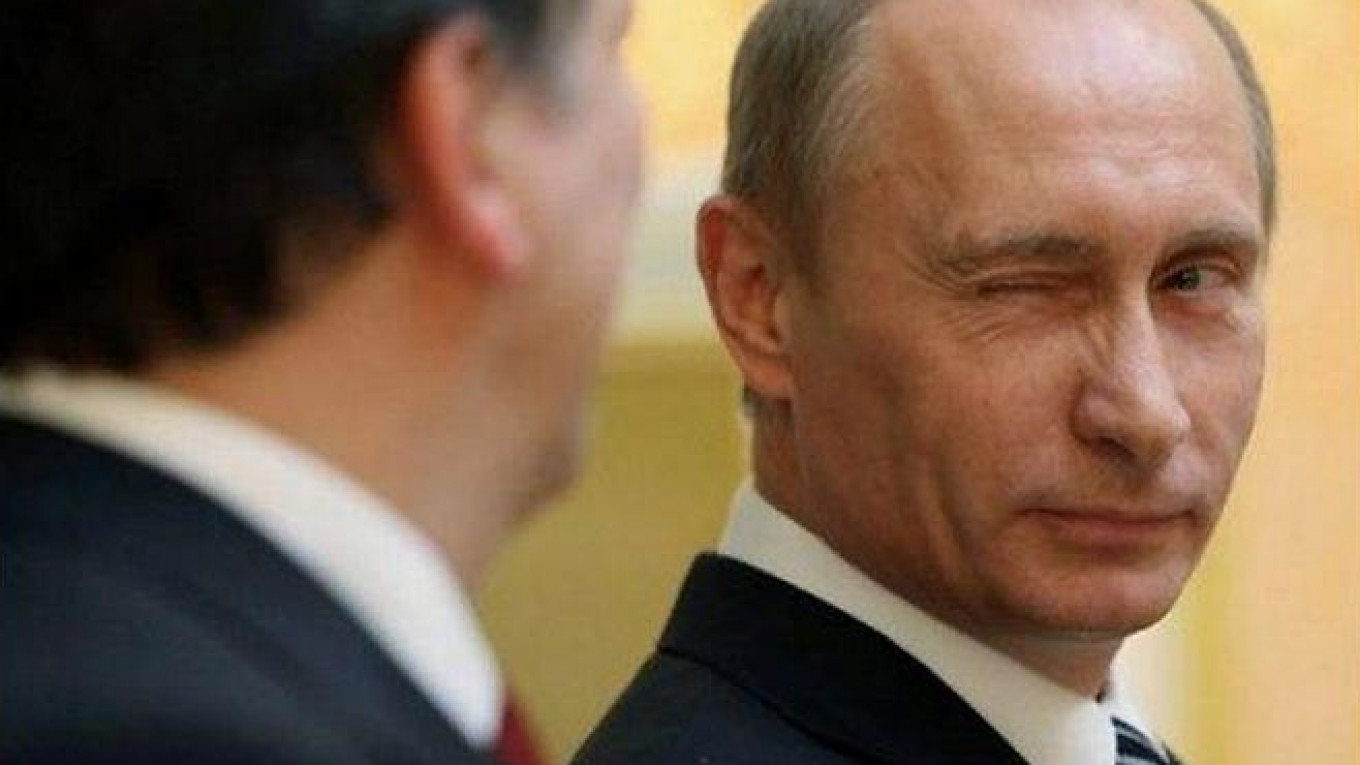For some reason, the international community was shocked by Russia's annexation of Crimea and President Vladimir Putin's decision to openly ignore the norms of international law. In truth, they should have seen it coming.
The first of sign that Moscow was playing by its own set of rules came on Sept. 18 when Russian border guards arrested a peaceful international group of Greenpeace activists in Arctic waters. The detainees were imprisoned in Murmansk and the Dutch ship carrying them was impounded. The ship was seized, it and its crew were searched without access to lawyers, and the activists were charged with piracy, punishable by up to 15 years in prison according to Russian law. Thus, 30 people, including the ship's captain and U.S. citizen Peter Wilcox, ended up in a Russian prison without due process. Reaction from the international community was remarkably restrained.
As the ship's national authority, the Netherlands filed a lawsuit with the United Nations International Tribunal for the Law of the Sea. Without even waiting for a ruling, the Russian Foreign Ministry declared that it did not agree with the pending decision and, apparently to avoid divulging any incriminating details in the case, said Russia did not recognize the authority of the tribunal.
Also last fall, Russia's Supreme Court made the unprecedented decision not to obey any decisions of the European Court of Human Rights concerning the case of Alexei Pichugin, a former deputy in charge of security for former Yukos CEO Mikhail Khodorkovsky. In 2005, Russian courts sentenced Pichugin to 20 years in prison, and in 2007 extended it to a life sentence. In October 2012, the European court ruled that the verdict against Pichugin was unfair and ordered Russia to pay him for his pain and suffering. In March 2013, the European court declared its verdict to be final and rejected Russia's request for a review. Then on Oct. 23, Russia's Supreme Court openly declared that it would not comply with the European decision. That was the first time such a decision was made officially, at such a high level, and with the accompanying propagandistic fanfare.
By a strange coincidence, one set of Russian officials announced that Moscow would not recognize the European ruling on the same day that a different set of Russian officials declared that Moscow did not recognize the authority of the International Tribunal for the Law of the Sea.
Interestingly, Russia had earlier appealed to the sea tribunal when its own courts had difficulty resolving certain questions and had sometimes even won cases there. Also, Russia, as one of the 164 signatory countries to the UN Convention on the Law of the Sea, is obliged to recognize tribunal rulings. So its decision not to recognize the tribunal raised eyebrows and prompted discussion over how Russia would defend its own maritime interests in the future.
But the fact is that fall of 2013 marked the beginning of Russia's withdrawal from international law. Recent events in Crimea are only the latest stage in that process, and it is clear that the trend will continue.
As for Western sanctions against Russian officials who ignore international law, Russian lawmakers last year drafted legislation that allows the government to reimburse Russians for any losses that they incur as the result of rulings by foreign courts. The bill was so controversial at the time that the authorities decided to shelve it until the occasion demanded. Now the occasion demands it, and lawmakers are slated to vote on the bill in the coming days.
Andrei Malgin is a journalist, literary critic and blogger.
A Message from The Moscow Times:
Dear readers,
We are facing unprecedented challenges. Russia's Prosecutor General's Office has designated The Moscow Times as an "undesirable" organization, criminalizing our work and putting our staff at risk of prosecution. This follows our earlier unjust labeling as a "foreign agent."
These actions are direct attempts to silence independent journalism in Russia. The authorities claim our work "discredits the decisions of the Russian leadership." We see things differently: we strive to provide accurate, unbiased reporting on Russia.
We, the journalists of The Moscow Times, refuse to be silenced. But to continue our work, we need your help.
Your support, no matter how small, makes a world of difference. If you can, please support us monthly starting from just $2. It's quick to set up, and every contribution makes a significant impact.
By supporting The Moscow Times, you're defending open, independent journalism in the face of repression. Thank you for standing with us.
Remind me later.






